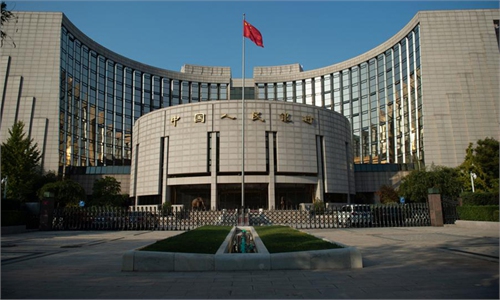Improved fundamentals boost foreign institutions’ bullish outlook on Chinese assets for 2025
Improved fundamentals fuel confidence despite headwinds

An aerial view of Shanghai File photo: VCG
As 2024 comes to a close, financial institutions are rolling out their investment outlooks for the year ahead. Despite recent market volatility, foreign institutions continue to give optimistic reports on Chinese assets. Economists point to strengthening expectations for improved macroeconomic fundamentals, forecasting significant upside potential for China's A-shares in 2025, despite the complexities faced by the global economy.
The MSCI China Index is expected to yield a return of 5-6 percent in 2025, James Wang, head of China Equity Strategy Research at UBS investment Bank, said in a note sent to media on Monday.
Though geopolitical tensions and other headwinds may lead to potential downsides in the short term, Wang noted that any market pullbacks will present more attractive buying opportunities for investors.
"Since market expectations are currently subdued, we believe there is substantial room for growth in 2025 and we are constructive on Chinese equities in the next 12 months," Raymond Ma, Invesco's chief investment officer for Hong Kong and Chinese mainland, said in the note sent to the Global Times.
"Looking ahead to 2025, we expect fiscal policy support to continue and foresee the implementation of more targeted fiscal measures," Ma said.
Senior economists from Goldman Sachs and AllianceBernstein also expressed similar bullish views on Chinese assets recently.
The bullish stance is underpinned by strengthening economic fundamentals, driven by the incremental policies recently introduced by the Chinese government. For instance, economists have highlighted the anticipated recovery in domestic demand within China's vast market.
"Given the recent policy support, we believe that domestic demand will recover in 2025. This will lead to an improvement in spending and investment to create a more resilient economic environment and to ensure a stable growth going forward," Ma said.
As the year-end shopping season approaches, Chinese cities have rolled out new rounds of consumption vouchers to boost the recovery of consumption.
Meanwhile, the car trade-in program is gaining strong momentum, with its policy effects becoming increasingly evident. As of November 18, nationwide applications for subsidies for scrapping and replacing old vehicles have surpassed 2 million each, bringing the total to over 4 million, data from China's Commerce Ministry showed.
"Given the current strength and determination of policy support, the domestic economy is expected to stabilize and recover, driving corporate profit growth. Combined with the attractive valuation of A-shares and the breadth and depth of over 1,000 listed companies, we believe A-shares continue to offer abundant stock-picking opportunities for generating excess earnings," read an AllianceBernstein research note released on November 6.
Global capital is snapping up Chinese assets, sending a positive signal to the markets, Yang Delong, chief economist at Shenzhen-based First Seafront Fund, told the Global Times on Tuesday.
Despite the complexities of the global economic landscape, the continued rollout of incremental policies has bolstered investor confidence, and many Chinese assets are deeply undervalued after more than three years of declines, Yang said, adding that the US Federal Reserve has entered a rate-cutting cycle, which is expected to strengthen the yuan and boost global interest in yuan-denominated assets.
Meanwhile, equity valuations in the US, Europe, and Japan are at historic highs. In contrast, A-shares and Hong Kong stocks stand out as undervalued opportunities, Yang noted.
China will continue to open its financial sector wider, deepening reforms to create a more market-oriented, law-based, and international business environment, Li Yunze, head of the National Financial Regulatory Administration, recently said at a forum.
Li expressed strong support for foreign financial institutions to engage more fully in China's financial markets and warmly welcomed financial institutions and long-term capital from around the world to come to China and expand their operations.



